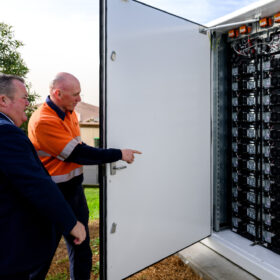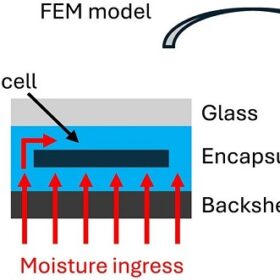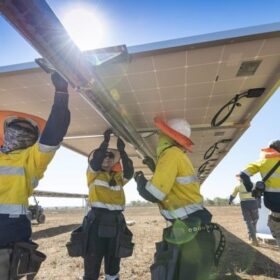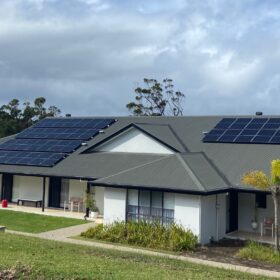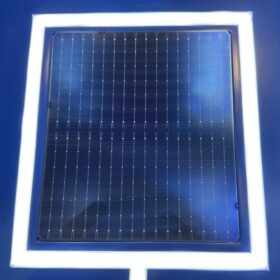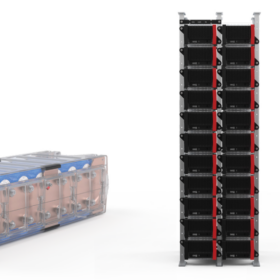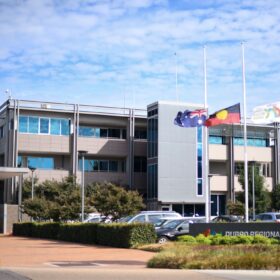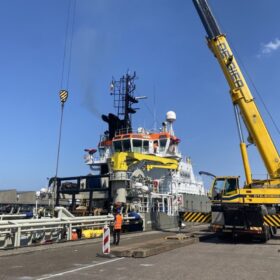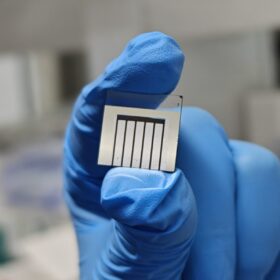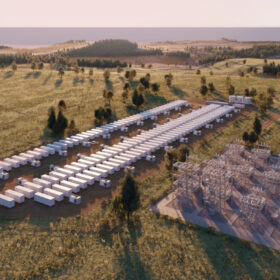Endeavour Energy community battery program switches on two new projects
Two New South Wales community batteries have been switched on in outer western Sydney suburbs, to enable 140 local residents access to renewable energy, whether they have solar or not, are home owners, renters or live in an apartment.
New model to predict moisture ingress in photovoltaic modules
Researchers in Netherlands and Belgium have created a numerical model to simulate the moisture ingress in PV modules. Their research work showed that climate in which a PV module is installed has a much higher impact on the moisture ingress than the choice of materials for the encapsulant of the backsheet.
Clean energy to ignite $36 billion construction boom from 2026
A new report predicts that electricity will become the country’s largest infrastructure investment sector from 2026, driven by a boom in renewable energy construction, with solar construction projected to also peak around $5.7 billion in 2027/28.
New South Wales flat-rate solar feed-in tariff set for 2025-26
New South Wales has published it’s solar feed-in tariff benchmarks, showing electricity consumers can expect to receive a flat-rate solar feed-in tariff between 4.8 and 7.3 c / kWh from their retailer for solar electricity exported to the grid in 2025-26.
First year hydrogen powertrain tests eVTOL for emission-free flight
AMSL Aero has released hydrogen fuel cell test results for its vertical takeoff and landing aircraft which is under development at Bankstown Airport in New South Wales for the purpose of decarbonising essential air services such as medical transfers.
All solar cell efficiencies at a glance – updated
The research group led by Professor Martin Green has published Version 66 of the solar cell efficiency tables. There are 21 new results reported in the new version.
Zenaji launches global licensing model for LTO battery technology
Australian battery manufacturer Zenaji has launched a global licensing model that allows international partners to manufacture and rebrand its proprietary Aeon and Eternity lithium titanate oxide energy storage systems.
UNSW targets energy efficiency with real-world trial of management system
Researchers in New South Wales have teamed with the Dubbo Regional Council to trial a hybrid energy management system that aims to revolutionise how buildings consume, store, and distribute energy to improve efficiency while lowering costs and reducing reliance on fossil fuels.
World’s first offshore solar-wind project moves forward
An offshore solar farm is being deployed close to an existing wind farm as part of a project in the Dutch North Sea. The developers have recently installed an anchoring system that will hold the solar farm in place while an electrical cable connects the array to a nearby wind turbine foundation.
Perovksite-TOPCon tandem solar cell based on self-assembled monolayer achieves 31.1% efficiency
Researchers in China have fabricated a perovskite-TOPCon solar cell with a top perovskite device utilising a self-assembled monolayer aimed to improved cell stability. The tandem cell achieved a high fill factor and a certified efficiency of 30.9%.
